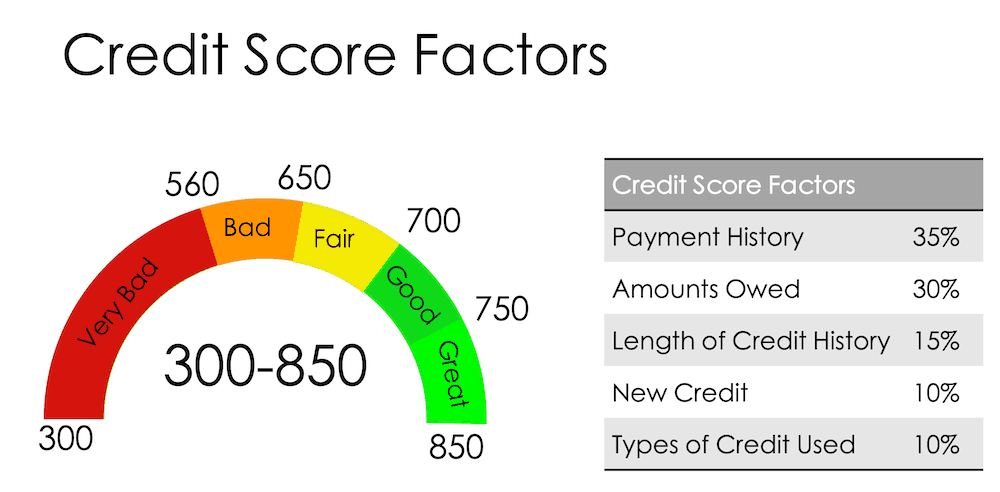Credit Scores
Build Credit and Avoid Identity Theft
Building credit and maintaining financial health will positively affect many aspects of your future. Mistakes you make now may hinder your ability to reach many of the goals you have such as buying a house or even renting an apartment. Credit is one’s ability to obtain goods or services before actually paying for them. Having “credit” is based on the trust that someone will make payment in the future. Someone who has honored their financial commitments in the past will have good credit– or in other words – they will be deemed creditworthy.
A popular way to establish credit is by applying for and being approved for a credit card. Before you obtain a credit card, it is extremely important to weigh the benefits and the risks to make sure it is in your best interest:
| Benefits | Risks |
| Helps in emergencies | High fees |
| Convenient | High interest rates |
| Safer for internet purchases | Interest compounds |
| Required for car rental | Leads to impulse purchases |
| Safer than carrying cash | Can lead to bad credit if not used properly |
| Possible travel & cash back rewards | Confusing credit terms |
Someone’s creditworthiness is easily revealed in their credit score, a 3-digit score assigned to the individual based on their past behavior with money.
This score is calculated using several factors:

Sources: AAMC & MyFico.com
All 5 of these factors apply to credit card usage, which is why it's so important to use credit wisely. Your credit score is a snapshot of your financial health and history, but your credit report provides a complete view of your financial responsibilities. Your credit report includes your:
- Name and aliases
- Employer
- Contact information
- Addresses (current and previous)
- Credit inquires
- Detailed information on loan payments, including amounts borrowed and payment histories
- Public records
We recommend that students review their credit reports on annualcreditreport.com, where you are provided with one free credit report from each of the credit reporting agencies (TransUnion, Equifax, and Experian) every 12 months. To best keep tabs on your credit, check one report at a time, so that you can space your free reports out throughout the year.
To build good credit, you must establish the following habits:
- Pay bills on time
- Pay before the due date, preferably with automatic withdrawals
- Pay down outstanding balances
- Check your credit report periodically
- Protect your identity
Resources
Step on the Credit Score Scale
Disputing Errors and Avoiding Identity Theft
It is important to review your credit report so that you can be cognizant of errors and can dispute them in a timely manner. Typical errors found on credit reports include duplicate accounts, inaccurate payment history, and negative information that should have “aged off.” You can dispute the errors with the credit agency who issued the report.
- TransUnion: 800-888-4213 (general) or 800-680-7289 (fraud); P.O. Box 2000, Chester, PA 19022; www.transunion.com
- Equifax: 800-685-1111 (general) or 800-525-6285 (fraud); P.O. Box 740241, Atlanta, GA 30374; www.equifax.com
- Experian: 888-397-3742 (general and fraud); PO Box 2002, Allen, TX 75013, www.experian.com
Identity theft is a serious matter that occurs when someone steals your personal information to use for themselves, usually to obtain lines of credit in your name. It is a crime that can take years to resolve and can severely damage your finances. Consumer information regarding identity theft can be found on the Federal Trade Commission’s website.
A good educational resource on credit & other personal finances is creditcardinsider.com

